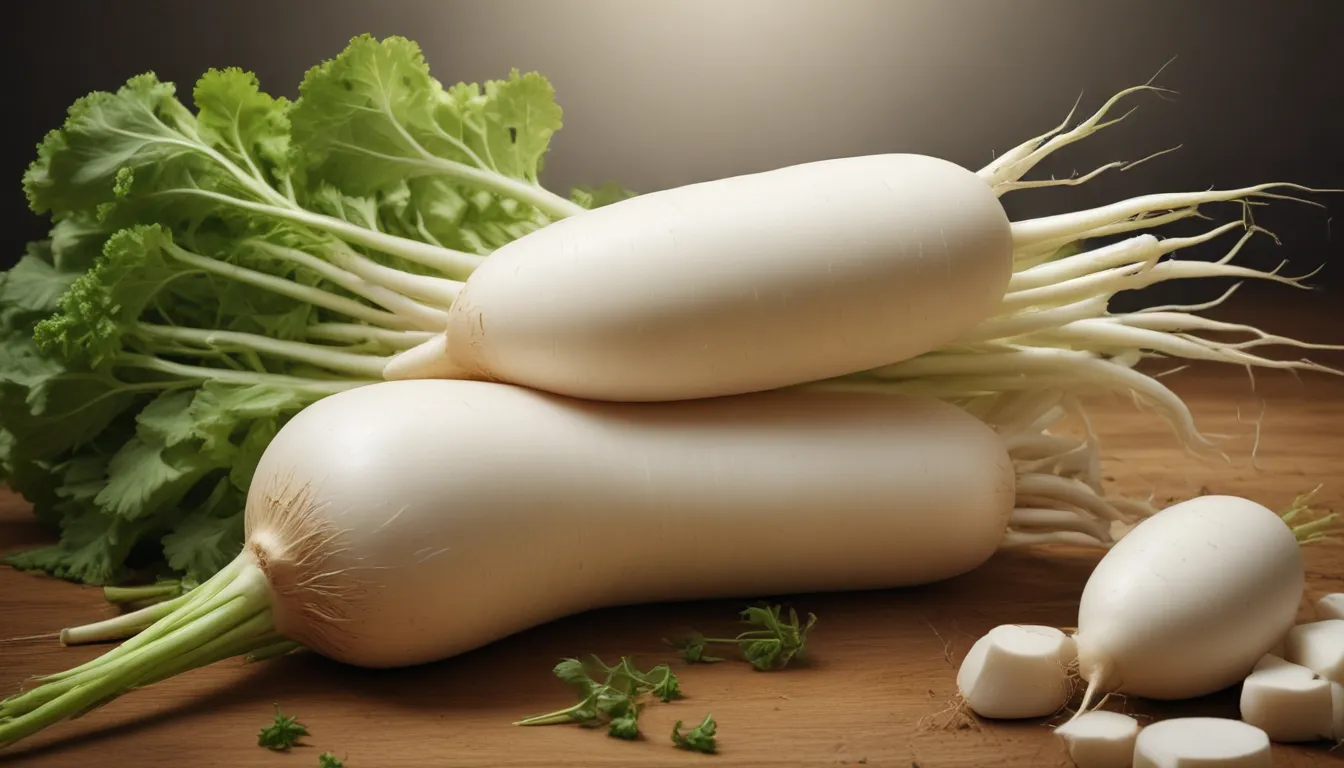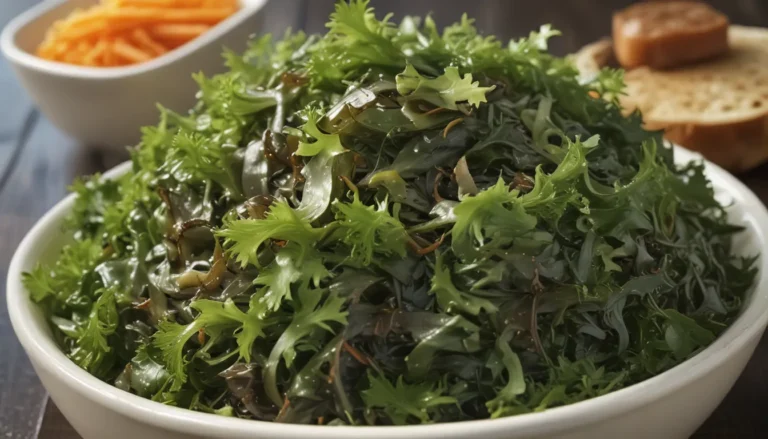The pictures in our articles might not always show exactly what the text is talking about. We use these images to make the article more interesting and eye-catching. They are there to add to the text, but not to replace it or show every detail.
Daikon, also known as the "Japanese radish," is a vegetable with a long history and a range of health benefits. From its cultivation to culinary uses, daikon has captured the attention of food enthusiasts worldwide. Let's delve into 13 intriguing facts about daikon that will inspire you to explore its nutritious and delicious possibilities.
The Nutritional Power of Daikon
Daikon radishes are a powerhouse of essential nutrients, including vitamins C and B6, folate, and potassium. These nutrients aid in digestion, weight loss, and overall health, making daikon a valuable addition to any diet.
Impressive Size of Daikon Radishes
One of the most notable features of daikon radishes is their size. These root vegetables can grow up to 16 inches long and weigh several pounds, making them easily recognizable in the produce aisle.
Centuries of Cultivation
Daikon radishes have a long history dating back centuries in East Asia. Countries like China, Japan, and Korea have cultivated daikon radishes for generations, contributing to their popularity and culinary significance.
Edible Leaves of Daikon Radish
While the focus is often on the root, the leaves of the daikon radish are also edible and nutritious. Incorporating these leaves into salads, stir-fries, or juices can provide an additional boost of flavor and health benefits.
Low-Calorie Content of Daikon Radishes
For those mindful of their calorie intake, daikon radishes are an excellent choice. With only about 20 calories per 100 grams, daikon radishes offer a satisfying and nutritious option for maintaining a healthy weight.
Detoxifying Properties of Daikon Radishes
Daikon radishes are believed to have detoxifying properties due to their high water content and enzymes. These radishes are often used in traditional medicine for their diuretic and liver-cleansing effects.
Versatility in the Kitchen
Whether raw, pickled, grated, or cooked, daikon radishes offer endless culinary possibilities. From soups and stews to stir-fries, daikon radishes can be a versatile ingredient that adds a unique flavor and texture to dishes.
Digestive Aid
With its high fiber content, daikon radishes promote healthy digestion by preventing constipation and supporting regular bowel movements. Including daikon in your diet can help maintain a healthy digestive system.
Flavor Enhancement in Dishes
The mild and slightly tangy flavor of daikon radishes can enhance the taste of various dishes. Whether used as a topping or an ingredient in sauces and dressings, daikon radishes add a distinctive twist to culinary creations.
Source of Antioxidants
Daikon radishes are rich in antioxidants, which help combat free radicals and protect cells from damage. Including daikon in your diet can contribute to overall health and well-being.
Common Ingredient in Asian Cuisine
Daikon radishes are a staple in Asian cuisine, particularly in dishes from Japan, China, and Korea. Their unique texture and flavor make them a valued ingredient in salads, soups, pickles, and hot pots.
Blood Pressure Regulation
The potassium content in daikon radishes makes them a heart-healthy choice by helping to lower blood pressure levels and reduce the risk of cardiovascular diseases.
Weight Loss Support
For those looking to shed pounds, daikon radishes can aid in weight loss efforts. Their low-calorie and high-fiber content helps promote satiety while keeping calorie intake in check.
Conclusion
In conclusion, daikon radishes offer a range of health benefits and culinary possibilities. Whether you enjoy them raw, cooked, or pickled, daikon radishes can be a versatile ingredient that enhances the flavor of your dishes. With its nutritional content and culinary flexibility, daikon is a valuable addition to any diet.
FAQs
What is daikon?
Daikon is a type of radish native to East Asia, known for its mild flavor and crisp texture. It is versatile in various dishes and popular in Asian cuisine.
How do you store daikon?
Daikon should be stored in the refrigerator wrapped in a damp paper towel and placed in a plastic bag or wrapped in plastic wrap. Properly stored, daikon can last up to two weeks.
How do you prepare daikon?
Daikon can be sliced, grated, stir-fried, pickled, or used in soups and stews. Its versatility allows for endless culinary possibilities.
Is daikon good for weight loss?
Yes, daikon is a great addition to a weight loss diet due to its low-calorie and high-fiber content that promotes satiety and supports a healthy metabolism.
Can daikon be eaten raw?
Yes, daikon can be eaten raw and is a great addition to salads or as a fresh garnish on various dishes.
From its nutritional value to culinary applications, daikon radishes are a delightful addition to any kitchen. Explore the world of daikon and savor its unique flavors and benefits in your culinary creations.






